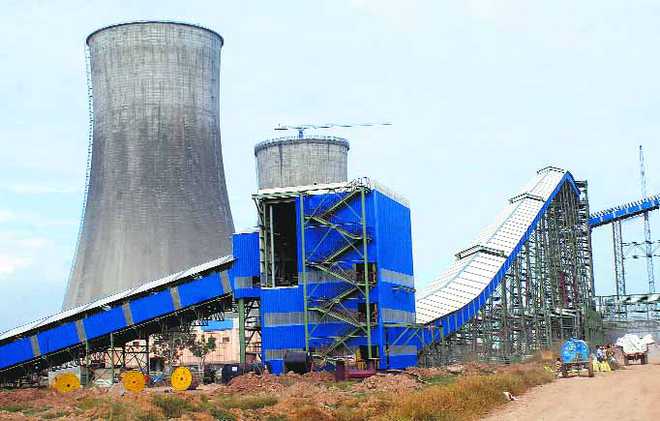Manish Sirhindi
Well begun is half done, say optimists. Rajpura surely made a good start, attracting large-scale industries in the 1980s and 1990s. It could have become another Ludhiana, a throbbing industrial city, but successive governments have failed to tap its potential.
An important railway junction, Rajpura is situated at the intersection of two national highways — NH1 and NH64. Despite its strategic location, its economic growth has been stunted. Local residents blame it on the flawed policies of the powers that be.
Taking a turn towards Nalash village from NH1, one gets a glimpse of the 1,400-MW Rajpura thermal power plant, which stands tall as a symbol of “Progressive Punjab”. However, on reaching the villages where land was acquired in 2007-08 to set up the plant, one hears tales of misery.
Jeet Pal Singh of Sural Kalan village feels cheated. “We were forced to sell our land on the promise that a member of each family (whose land was acquired) would get jobs in the plant. Initially, around 100 people were hired on daily wages. Now all have been shown the door,” he laments.
Fly ash and waste water are polluting the lake beside the plant. The pollutants eventually seep into the underground water, making it unfit for human consumption. “We tell our kids to avoid using the roads near the plant so as to shield them from air pollution,” says Kartar Kaur of Mirzapur village.
Rajpura, which was a stopover for the Suri dynasty in the 16th century, remained a rural settlement till Independence, after which thousands of migrants from Bahawalpur (Pakistan) came here and settled, converting the area into a bustling township.
A cluster of three villages (Banwardi, Neelpur and Rajpura), this entry point of Punjab was promoted as an important industrial hub. The town saw the arrival of top industries such as Hindustan Unilever (HUL, formerly known as HLL), Bunge India Pvt Ltd, Siel Chemicals Limited, Alliance Metaliks Integrated Ltd, Amber Enterprises Limited and Alcon Cables. Small-scale industries converted this subdivision into a focal point of door closer manufacturers, rice shellers, biomass briquette machinery, soap factories and steel works. But during the past decade and a half, all big units have moved out or decided not to expand operations due to crippled industrial growth, leaving thousands of employees jobless. Quark acquired 1,500 acres at Chamaru village to set up its office, but never started operations as things went from bad to worse.
The depleting water table is another major concern. Balwinder Singh of Mehtabhgarh village says tubewells have been sunk so deep that the water drawn is contaminated, which hits crop production. “Only some areas get water from the Narwana branch, while fields that grow paddy and wheat are bereft of irrigation facilities,” he adds.
Asked what he has done for his constituency, sitting MLA Hardyal Singh Kamboj says, “I got approved a Nabard-funded Rs 66-crore project to construct a dam on the Ghaggar near Banur, which is providing water to irrigate 40,000 acres in 50-60 villages. I also secured approval for a Rs 1,000-crore Footwear Design and Development Institute, which is set to admit trainees from next year with the promise of 100 per cent job placement.”
Kamboj, who is expected to get the Congress ticket again, had defeated BJP stalwart Raj Khurana in the 2012 poll. The latter’s candidature is virtually ruled out due to ill health. Moreover, the SAD is keen to take the Rajpura seat from its alliance partner (in exchange for Barnala).
The battlelines are not yet drawn, but there are a host of issues that voters want their elected representative to resolve. Amarinder Singh, a local youth, says there are many obsolete water pipelines that fail to supply potable water. The area frequently witnesses an outbreak of vector-borne diseases, he informs us.
Citizens also draw our attention to the prevalence of satta (gambling), closely linked to the drug menace. "While people have been raising these issues with the authorities, no action has been taken against the miscreants,” says Partap Singh, a resident.
The roads are in bad shape and the old town usually bears the brunt of traffic bottlenecks. On the education front, Rajpura has four engineering colleges, yet the local youth are facing unemployment. Apathy is the order of the day. And a fresh beginning is just a pipe dream.










